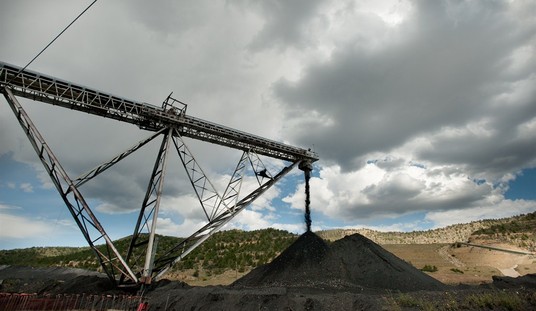Socialist Prime Minister José Luis Rodríguez Zapatero has ordered Spain’s official intelligence agency, the National Intelligence Center (CNI), to investigate whether the “Anglo-Saxon media” (aka English-language press) is conspiring to undermine the Spanish economy.
According to the center-left newspaper El País, which is close to the Zapatero government, the CNI is investigating “whether attacks by investors and the aggressiveness of some Anglo-Saxon media are being driven by market forces and challenges facing the Spanish economy, or whether there is something more behind this campaign.”
In recent weeks, the UK-based Financial Times newspaper and the Economist magazine, as well as some publications in the United States, have all published stories that have been highly critical of the economic policies being pursued by the Zapatero government.
To be sure, Spain is in the throes of the worst economic crisis in its recent history. Reeling from the collapse of a debt-driven construction boom, Spain has posted seven consecutive quarters of negative growth. According to the latest figures released by Spain’s National Statistics Agency, Spanish GDP fell 3.6 percent in 2009. The International Monetary Fund (IMF) says there will be no positive GDP growth in Spain until 2011, at which point it will still be below 1 percent.
At the same time, Spain now has the highest unemployment rate in the European Union. Nearly 20 percent of working-age Spaniards (or 4.5 million people) were without a job at the beginning of 2010. That compares with an average rate of 10 percent among the 16 countries that use the euro currency.
Spain is also facing an exploding budget deficit. The collapse of the labor market, which has resulted in a steep drop in tax collections, and the Zapatero government’s haphazard (and spendthrift) policy response of increasing unproductive public sector spending skyrocketed the deficit to nearly 12 percent of GDP in 2009 (or five times higher than in 2008).
The combination of negative GDP growth, rising unemployment, and a high deficit has raised concerns about the sustainability of Spain’s finances. Indeed, Standard & Poor’s, the credit rating agency, recently lowered its outlook on Spain’s sovereign debt from “stable” to “negative.” S&P, which had already lowered Spain’s maximum AAA rating in January 2009, cited the risk of a “prolonged period of below-par” economic growth and “persistently high fiscal deficits.”
Spain now faces the prospect of a downgrade of its government debt, which would make it more expensive for Spain to finance its debt. Indeed, investors anxious that a debt crisis in Greece could create a domino effect in Spain are already demanding higher interest rates to hold Spanish debt. As a result, the Zapatero government is working overtime to try to reassure debt markets that it will quickly return to fiscal prudence.
All this is a sea change for Zapatero, who until recently had doggedly refused even to admit that Spain was facing an economic “crisis” because “pessimism does not create jobs.” He was finally badgered into using the word “crisis” in a late-night television interview, after a journalist read him the word’s dictionary definition.
Since then, the Zapatero government has worked assiduously to pin the blame for Spain’s economic difficulties on outside forces. The industry minister said Spain was facing an “imported problem.” The deputy prime minister blamed Spain’s problems on “radical liberalism,” which in euro-speak means the free market. The labor minister blamed “the neo-conservative thinking preached by U.S. President George W Bush, which has resulted in capitalism without ethical limits.” Zapatero himself blamed “the neo-conservative model based on capitalism without borders nor limits nor ethics.”
At the same time, Zapatero said: “Criticizing the economy is unpatriotic.” He accused those who are worried about the economy of “demagoguery” and “exaggeration.” He also advised: “Let’s not turn economic forecasting into a fetish.”
Meanwhile, the agriculture minister advised Spanish consumers to ride out the economic storm by “eating rabbit meat” for Christmas, because at 5 euros per kilo, it is less expensive than the traditional pork or lamb.
Despite two surreal years of post-modern, reality-evading economic policymaking, the “Anglo-Saxon” media has largely ignored Zapatero’s fiscal foibles. However, that all changed after the country took over the six-month “rotating presidency” of the EU in January 2010.
Zapatero says the centerpiece of Spain’s EU presidency will be the drafting of a new 10-year plan, called the 2020 Economic Strategy, to boost growth and competitiveness within the EU. The initiative is supposed to be a follow-up to the failed Lisbon Agenda, a 10-year economic plan drafted in 2000 that attempted to make the EU “the most competitive economy in the world and achieving full employment by 2010.”
The most controversial aspect of Zapatero’s 2020 strategy is the proposal to establish binding economic objectives for each of the 27 EU members, with sanctions and/or financial penalties levied on countries that refuse to cooperate.
Speaking ahead of the formal inauguration of Spain’s EU presidency, Zapatero said, “Our main aim is to introduce a qualitative leap in our economic union by means of new common policies. It is absolutely necessary for the 2020 Economic Strategy … to take on a new nature, a binding nature.”
Zapatero’s comments set off alarm bells in Britain and some other EU member states with more liberal economies; those countries are worried about the further loss of sovereignty on economic issues.
Zapatero’s calls for aggressive economic action have provoked widespread ridicule at home and abroad. Across Spain, even newspapers normally friendly to the Zapatero government have asked how a country facing its worst economic crisis in 60 years can be trusted to manage the economic recovery of the 27-member EU. At the same time, editorials in France, Germany, Italy, and the Netherlands have mocked the idea of Zapatero advising Europe on economic recovery.
But some of the most vocal criticism of Zapatero has come from the “Anglo-Saxon” media. In London, the market-friendly Economist magazine published a scathing column that declared, “Spain now leads the European Union, but not by example. … If you want your advice to be heeded, you need something credible to say.”
Also in London, the Financial Times ran a story titled “A Stumbling Spain Must Guide Europe,” which described a cyber–attack against the website of Spain’s EU presidency. “On its first day, Web-surfers navigating to the special presidency Web site found themselves staring at photos of Mr Bean, the hapless British comedy character who (some claim) bears a resemblance to José Luis Rodríguez Zapatero, the Spanish prime minister. Mr. Bean is famous for his stumbles and mishaps — and Spain is also looking accident-prone at the moment.”
Since then, Zapatero has been subject to a relentless wave of critical headlines, including: “The Zapping of Zapatero: After Procrastination and Paranoia, it is High Time for some Prime-Ministerial Leadership,” “Spain Joins Greece at Bottom of Eurozone Class,” and “España Paranoica.”
Meanwhile, the New York-based Moody’s ratings agency has ranked Spain at the top of its Misery Index, a metric which adds a country’s fiscal deficit and the unemployment rate to grade how miserable an economy is.
On February 8, Infrastructure Minister José Blanco said shadowy forces were ganging up on Spain. “Spain is the victim of an international conspiracy to destroy the country’s economic status, and then, the euro,” he said. “Nothing that is happening, including the apocalyptical editorials in foreign media, is just chance.”








Join the conversation as a VIP Member